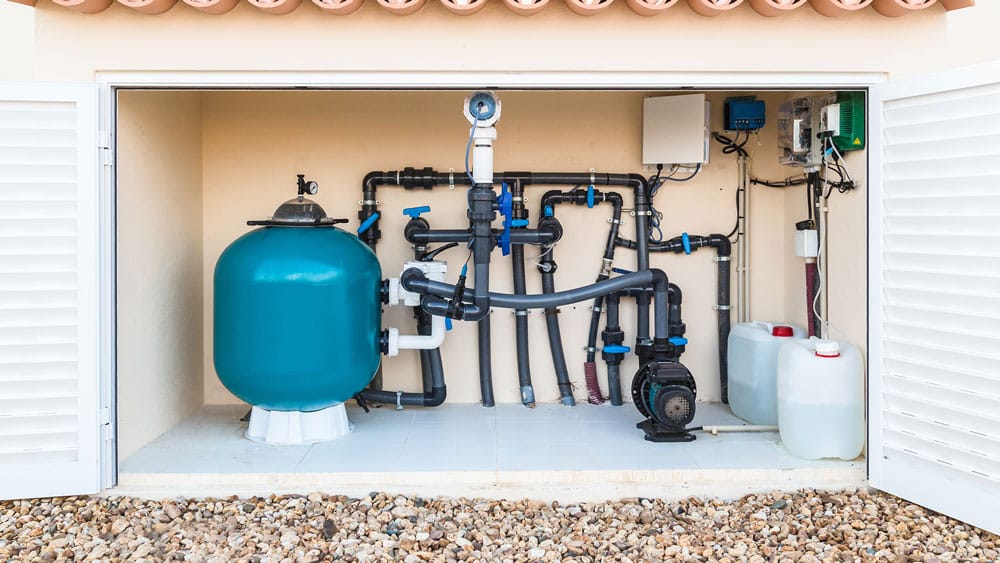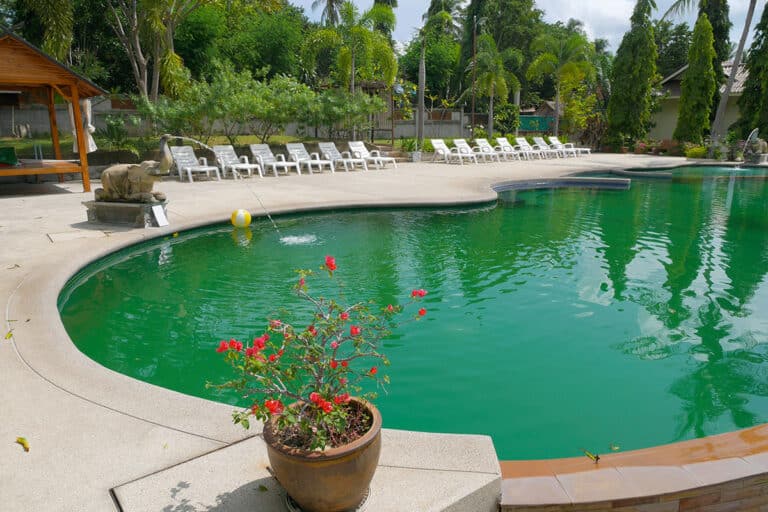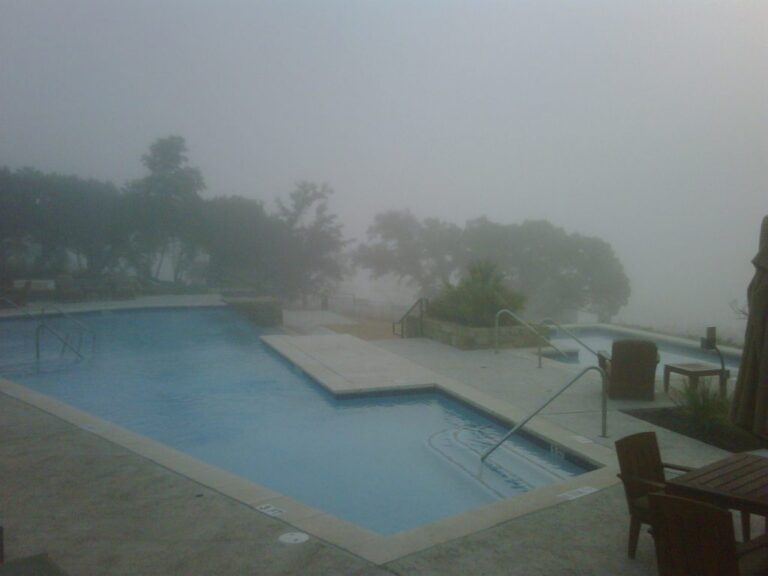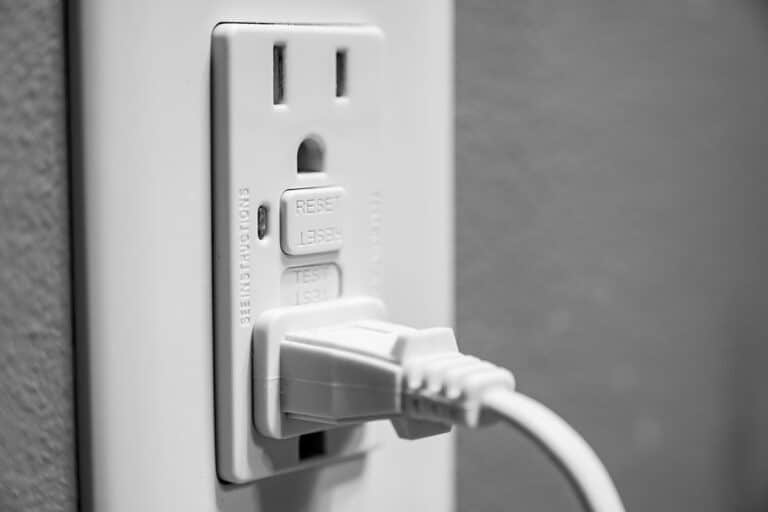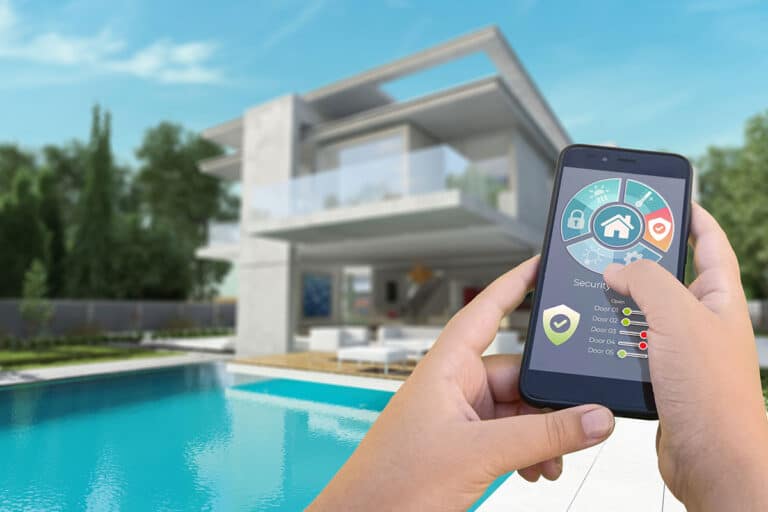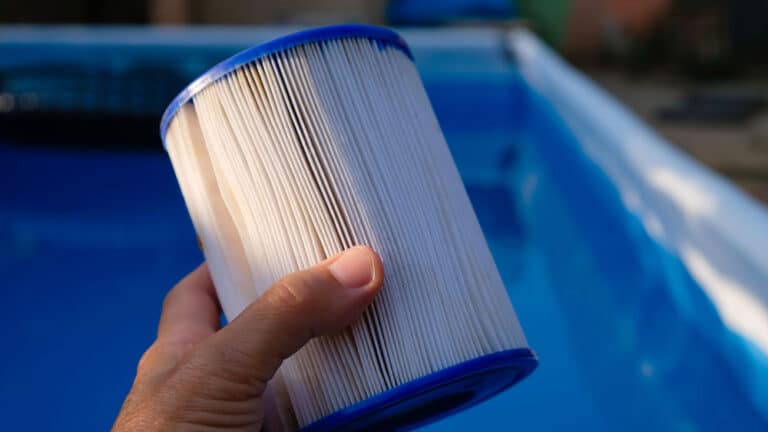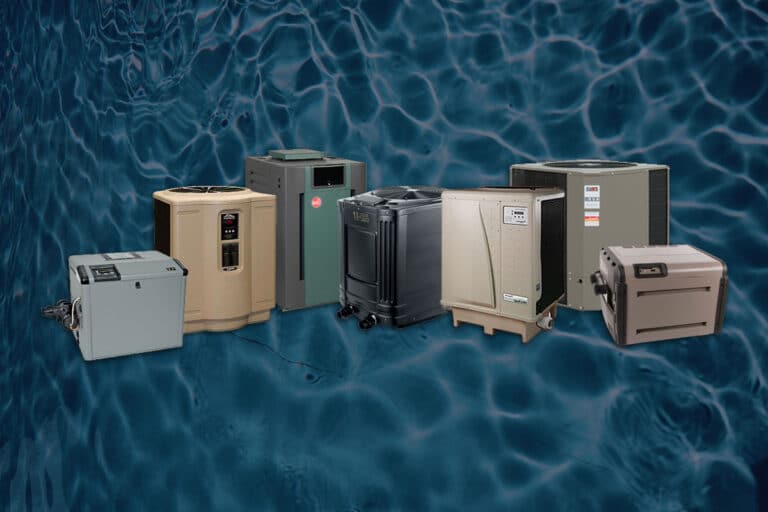Pumps and Motors
The pool pump often called the filter pump is the heart of the pool system. It is responsible for the circulation and filtration of the water. When a pump is not attached to the filter and provides water for a waterfeature it is called a waterfeature pump.
All pool pumps have the same basic parts. First, the suction manifold pipes tee into the front of the pump called the pump pot. The pump pot is connected to the pump housing. Inside the pump housing are a diffuser and impeller. The impeller is secured to the motor’s shaft by threads and sometimes a reverse threaded screw. A shaft seal is made of two parts, one half ceramic and the other half is carbon. Depending on manufacturer, one half of the seal rests on the impeller and the other half rests in the seal plate. The seal plate is then attached to the motor with a few bolts. The workhorse and last part of a pump is the motor. An electrical whip then connects it to your controller.
Most pool pumps are self-priming; this simply means that the pump can systematically prime itself, as long as there are no air intrusions. Air intrusions are basically any cracks, bad glue joints, or otherwise improperly sealed points along the plumbing or pump that allow air to be drawn into the pump.
When a pump turns on, the motor spins the impeller inside the housing very fast. With the aid of the diffuser helping to remove air from the pump, the pump pot and housing begin to fill with water. Once they are full of water, a vacuum is created which begins to suck water from the pool. It then pushes it through the equipment set and then back to the pool.
All of the above mentioned parts and plumbing are things that can break, melt, or burn out. Since the pump works every day, rain or shine, hot or cold, for 8 or more hours per day, it’s no wonder they require service with more frequency than other pool equipment.
Since everything for your pool depends on your pump to work, you should prioritize a pump repair above all else. Always use a qualified pool repair technician for any pool pump repair. The ability to identify, understand and repair all of the problems that can occur with a pump and associated plumbing requires years of experience to acquire and properly execute.


